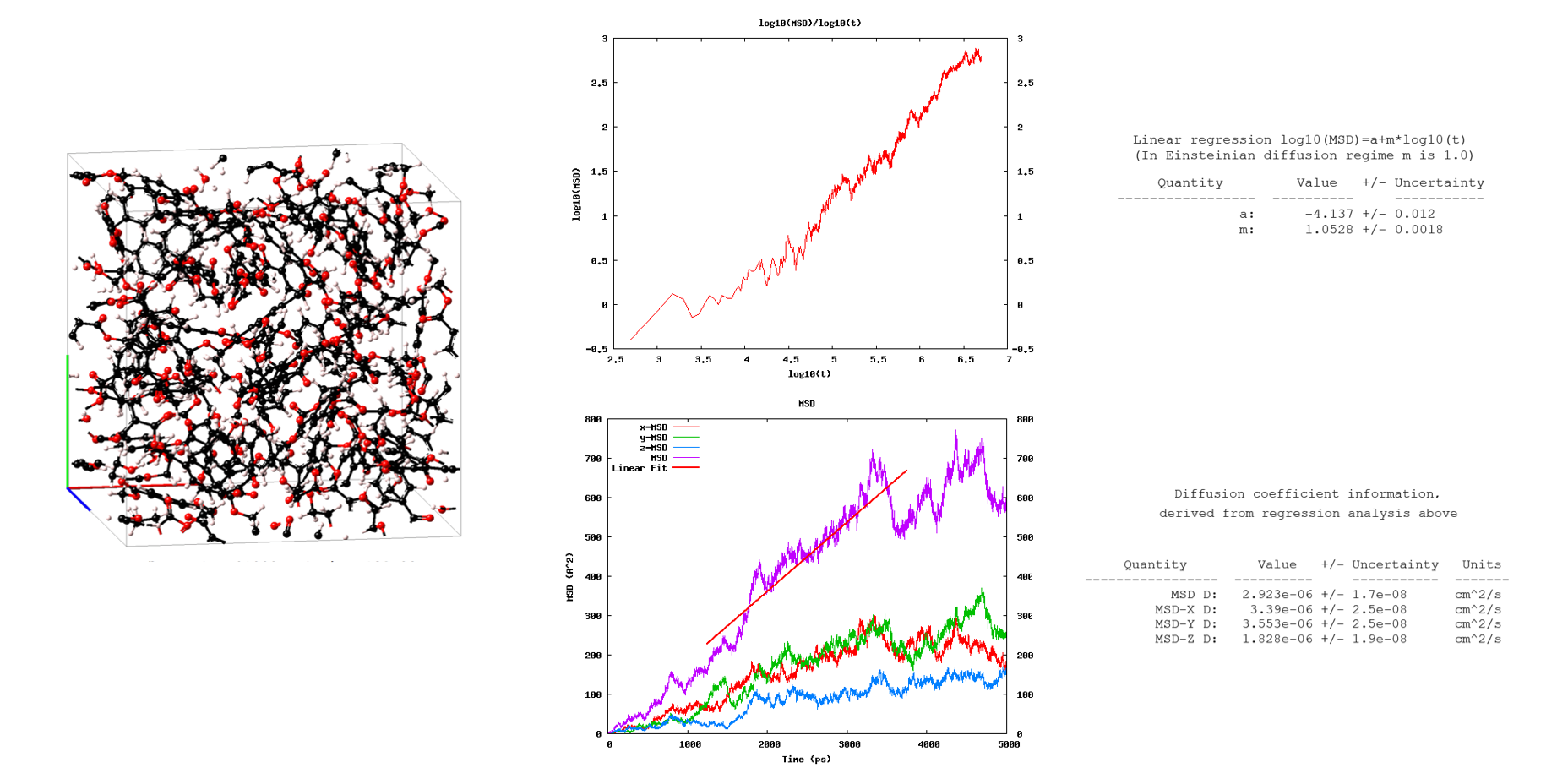MedeA Diffusion - Reliable Mass Transport Properties from Classical Simulations
At-a-Glance
Diffusion controls a wide variety of processes and properties, including manufacturing of semiconductor devices, environmental degradation of structural materials, corrosion, and permeability in polymers. The MedeA®[1] Diffusion module enhances your calculations by automatically computing the diffusivity of selected species using atomistic molecular dynamics techniques and facilitates you to observe the diffusive behavior of the different components.
Key Benefits
- Automated plot creation facilitates analysis of calculation results
- Visualization and confirmation of the presence of the diffusive dynamics regime through the provision of log(MSD) versus log(t) plots
- Calculation of the mean square displacement (MSD) of selected atom sets
- Determination of diffusion coefficients based on the Einstein diffusion equation
- Evaluation of calculation uncertainties

Computational Characteristics
- Use LAMMPS classical molecular dynamics engine for efficient performance on computers from scalar workstations to massively parallel supercomputers
- Apply Medea Diffusion to polymers, metals, and ceramics. Accuracy depends on the quality of the employed forcefield.
- Load models from the MedeA InfoMaticA databases or popular file formats, create them with the MedeA Amorphous Materials Builder, and even modify the models within simulation protocols of MedeA Flowcharts.
- Define different atom sets from multi-criteria selection based on atomic number, charges forcefield atom types, name, etc.
- Plug the MedeA Diffusion module into any LAMMPS simulation workflow. The MSD of selected atoms is computed with the microcanonical (NVE) ensemble. LAMMPS molecular dynamics and automated analysis of simulation results complete the workflow.
- MedeA Diffusion supports diffusivity calculations of multiple species (subsets) in one stage, so you can easily examine the cross interactions between diffusing species.
‘Let MedeA Diffusion calculate the diffusivity of selected species and help you to explore mass transport properties in an automated fashion’
Required Modules
- MedeA Environment
- MedeA Forcefield
- MedeA JobServer and TaskServer
- MedeA Diffusion
Recommended Modules
- Surface Tension
- Amorphous Builder
Find Out More
Learn more about using MedeA Diffusion by viewing this webinar:
Learn more on the Materials Design Tutorials to see how MedeA Diffusion can be employed in the following tutorials:
- Permeability of H2O in polyethylene terephthalate (PET)
- Permeability of O2in polystyrene (PS)
- Absorption of O2in polystyrene (PS)
Learn more on the Materials Design Application Notes page to see about MedeA Diffusion can be employed in the following application note:
- Self Diffusion of Argon
| [1] | MedeA and Materials Design are registered trademarks of Materials Design, Inc. |
| download: | pdf |
|---|